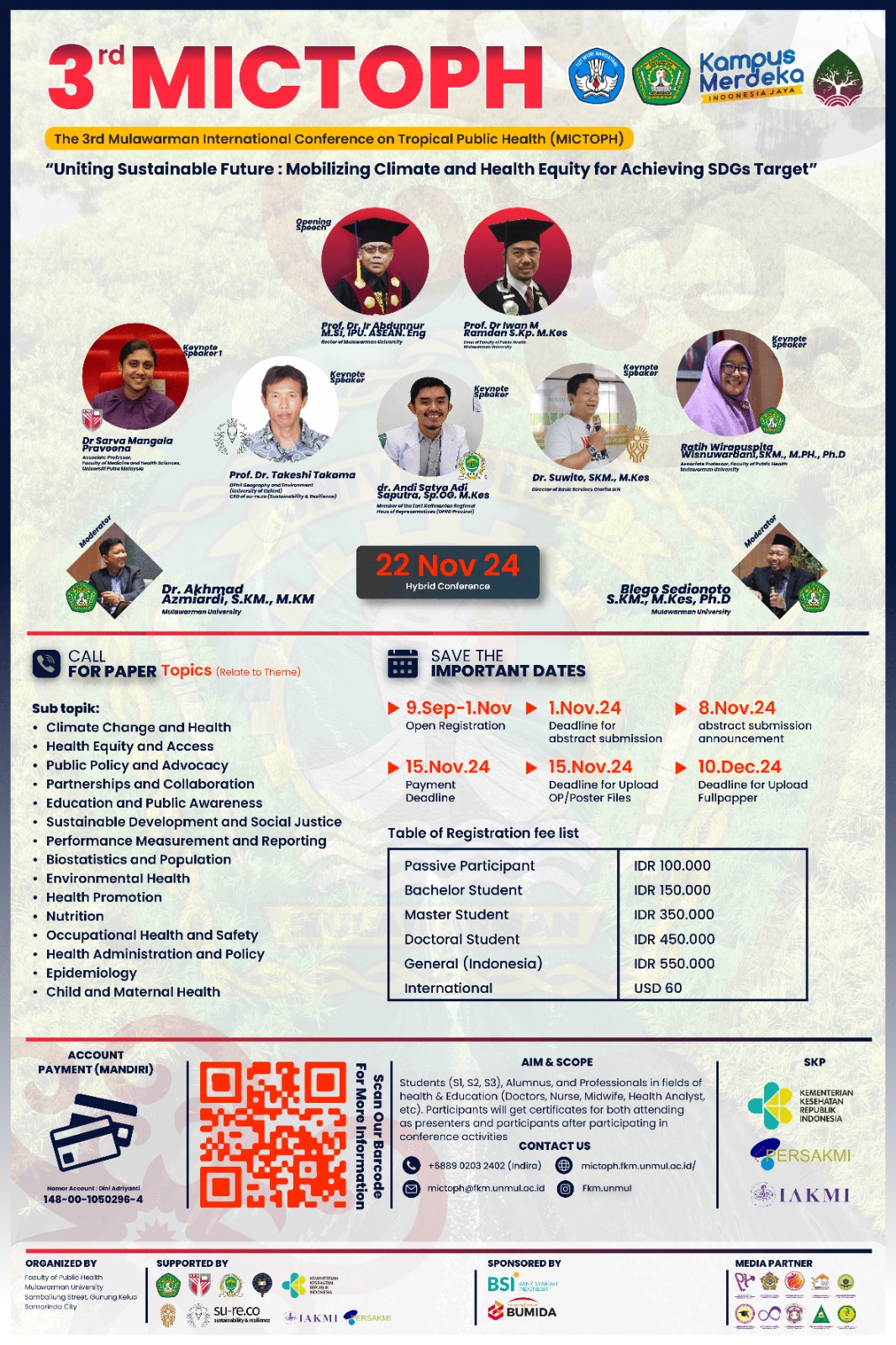Enhancing Adolescent Capacity through the RAPIH Program in Tengin Baru Village, North Penajam Paser
Keywords:
RAPIH, health, adolescent, stress, educationAbstract
Adolescent issues have multiple elements, one of which is related to adolescent health knowledge. According to the results of primary data from Field Learning Experience I (PBL) 2024 in Tengin Baru Village, adolescents awareness of adolescent health, particularly reproductive health, remains low, and adolescents' stress levels are high. Based on early marriage indicators, up to 64.2% of adolescents lack enough reproductive health knowledge. Meanwhile, up to 30.5% of adolescents lack information regarding the effects of adolescent stress. This study aims to improve adolescents awareness of health, with a particular focus on reproductive health and stress management in Tengin Baru Village. The research's particular objective is to assess the efficacy of an educational counseling program in enhancing high school students' knowledge levels, hence encouraging improved health behaviors among adolescents. This program uses an educational counseling method in the form of delivering material via PowerPoint media and using pre- and post-tests to measure the level of student knowledge before and after counseling is provided to high school adolescents in grades 11 and 12, with 33 participants. Adolescent knowledge in Tengin Baru Village increased by 15.75% between before and after counseling, from 72.73% to 88.48%, as proved by the results of the pre-test and post-test. The importance of gaining information in modifying one's behavior, such as by offering adolescent health counseling. Counseling activities can be conducted regularly to provide the most up-to-date knowledge about the development of adolescents issues. Furthermore, cross-sector coordination is required to ensure that the program runs well.





